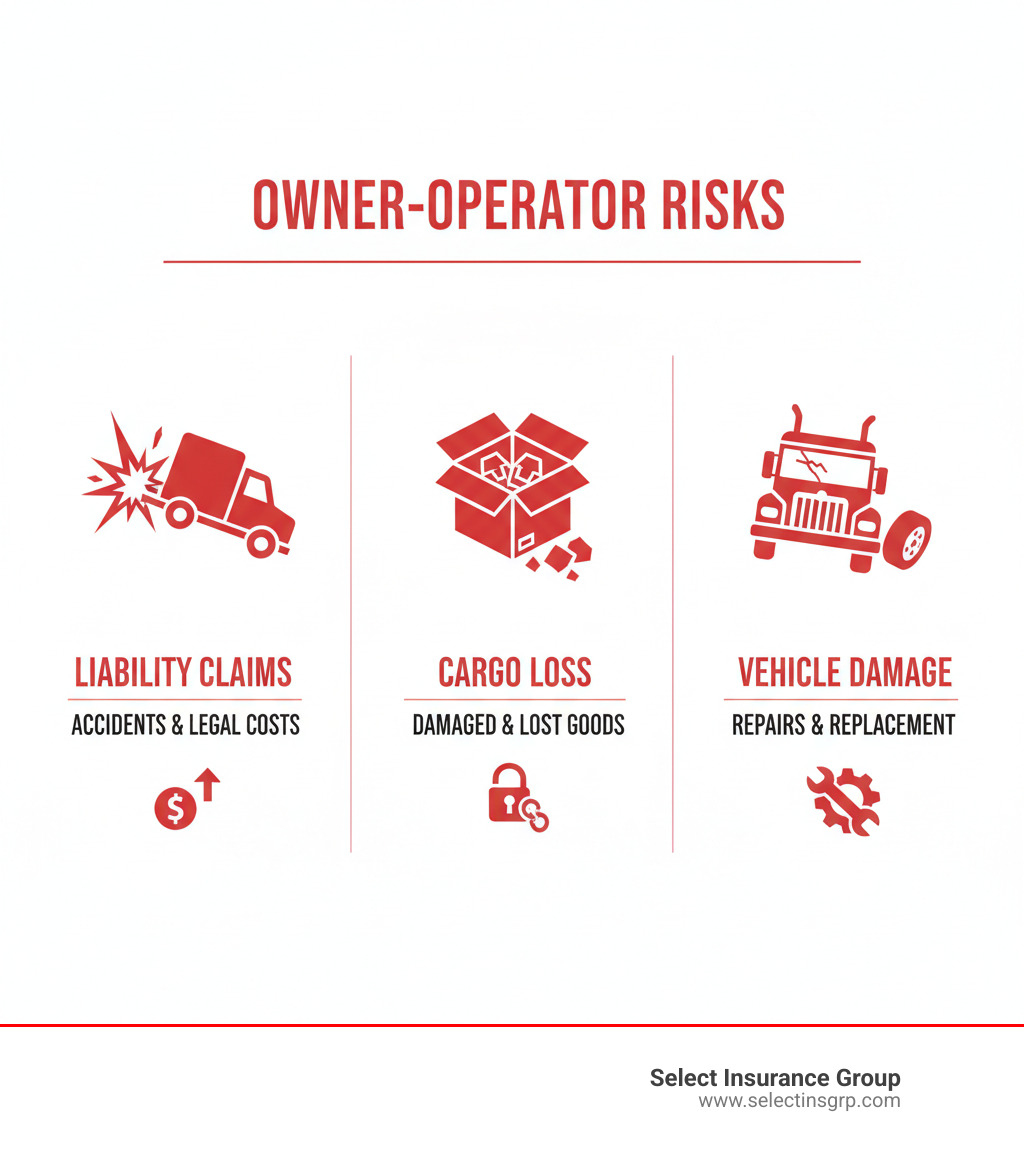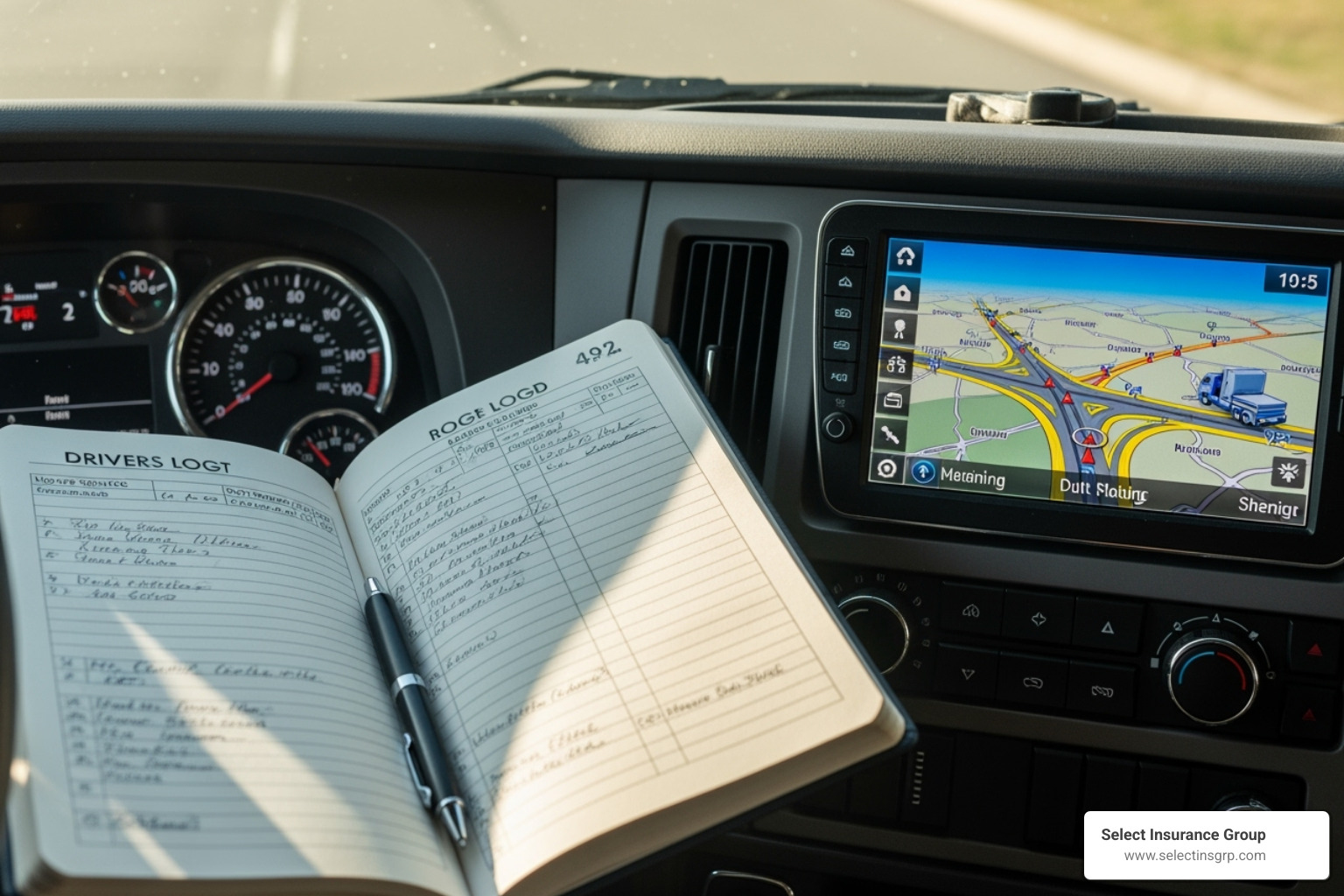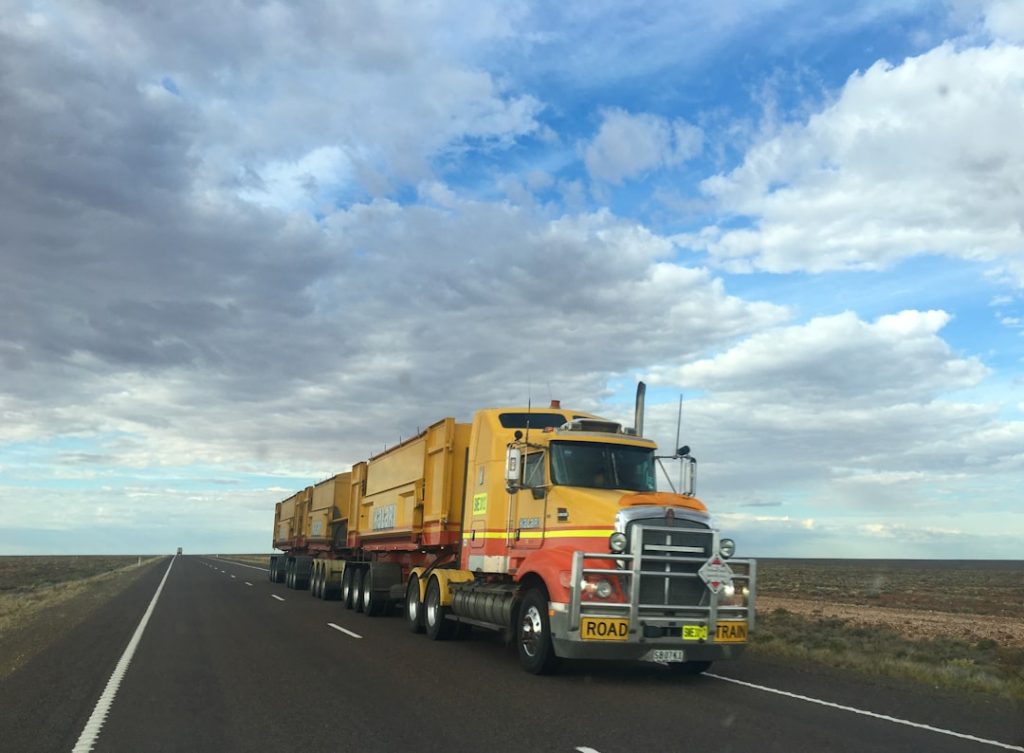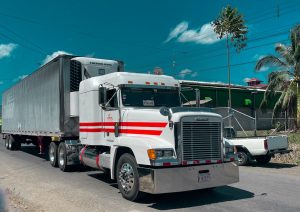Why Single Truck Insurance is Critical for Owner-Operators
Single truck insurance is specialized commercial auto insurance for independent owner-operators and small businesses with one commercial vehicle. Whether hauling freight under your own authority or leased to a motor carrier, this coverage protects your business from the financial devastation of accidents, cargo loss, and liability claims.
Key facts about single truck insurance:
- Cost Range: $217 to $997 per month for $1 million in liability coverage
- Who Needs It: Owner-operators, independent contractors, and small businesses with one commercial truck
- Core Protection: Liability, physical damage, cargo coverage, and medical payments
- Critical Difference: Single truck policies are individually rated, while fleet insurance (5+ vehicles) assesses risk holistically
| Single Truck Insurance | Fleet Insurance |
|---|---|
| 1-4 commercial vehicles | 5+ commercial vehicles |
| Individually rated per vehicle | Holistically rated across fleet |
| Custom to owner-operator needs | Designed for larger operations |
| May include personal use options | Strictly business use |
Why it matters: As an owner-operator, a single serious accident could destroy your business. For example, the average commercial vehicle is involved in one out of every 26 crashes in states like South Carolina. Without proper coverage, you’re personally exposed to claims that can reach hundreds of thousands—or even millions—of dollars.
The right policy does more than meet legal requirements; it protects your livelihood, equipment, cargo, and ability to keep earning. It covers liability claims, physical damage from theft or weather, and cargo loss that would otherwise come out of your pocket.
I’m D.J. Hearsey, founder of Select Insurance Group. For over three decades, my team and I have helped owner-operators across the Southeast find affordable, comprehensive single truck insurance. We work with over 40 carriers to ensure you get the right coverage—not just the cheapest quote.

Single truck insurance definitions:
Essential Coverages for Your Single Truck Operation
Your insurance policy is the financial foundation that keeps your one-truck operation alive. The right single truck insurance protects your truck, cargo, income, and future. Let’s walk through the essential coverages.
Primary Liability
Required by federal law, primary liability insurance protects you when you’re at fault in an accident that injures someone or damages their property.
Bodily injury coverage pays for medical bills, lost wages, and pain and suffering for those you injure in an accident. A serious crash can result in million-dollar claims, and without this protection, the costs could bankrupt your business.
Property damage coverage handles repair or replacement costs for anything you damage in an accident, from other vehicles to buildings or guardrails. Hitting a storefront or causing a highway closure can lead to six-figure bills.
Without primary liability, you can’t legally operate.
Physical Damage
Your truck is your biggest business investment. Physical damage coverage protects that investment from the many things that can go wrong on the road.
Collision coverage pays to repair or replace your truck when it’s damaged in an accident with another vehicle or object, regardless of fault. Without it, you’re paying for every repair yourself.
Comprehensive coverage protects against non-collision events like theft, vandalism, fire, hail, floods, and hitting an animal. It’s insurance for the unpredictable.
Motor Truck Cargo
The freight you’re hauling is valuable, and you could be held responsible for it. Motor truck cargo insurance covers loss or damage to goods from perils like collision, fire, theft, or refrigeration breakdown. Without this coverage, a single damaged load could wipe out months of profit.
Uninsured/Underinsured Motorist
Not everyone carries proper insurance. Uninsured/underinsured motorist coverage (UM/UIM) protects you when someone without adequate insurance causes an accident that injures you or damages your truck. This coverage is a safety net, especially since roughly one in eight drivers is uninsured.
For more detailed information on business auto insurance requirements and options in Florida, check out our guide on Florida Business Auto Insurance.
Specialized Coverages to Consider
Beyond the core coverages, specialized options address the unique risks owner-operators face.
Non-trucking liability (or bobtail insurance) is critical if you’re leased to a motor carrier. Your carrier’s primary liability typically doesn’t cover you when driving for personal errands or between dispatches. Without it, an accident during that off-duty time could be financially devastating.
Trailer interchange coverage provides physical damage coverage for non-owned trailers you’re hauling under a written agreement. This covers the trailer itself, not the cargo inside.
Medical payments coverage helps pay for immediate medical expenses for you and any passengers after an accident, regardless of who caused it.
Rental reimbursement coverage helps pay for a rental vehicle when your truck is in the shop after a covered loss. This keeps you earning, as downtime means no income for an owner-operator.
Occupational accident coverage is an alternative to workers’ compensation for owner-operators. It provides benefits for medical expenses, disability, and death from work-related injuries, as traditional workers’ comp is often impractical for self-employed individuals.
These specialized coverages fill the gaps that standard policies leave open, giving you comprehensive protection.
What Influences Your Single Truck Insurance Premium?
Understanding what drives the cost of your single truck insurance premium is key to finding the best policy and saving money. Insurance companies look at many factors to assess your risk level and determine your monthly rate. By understanding these factors, you can take steps to lower your costs without sacrificing protection.

Driving Record (MVR)
Your Motor Vehicle Record (MVR) is a huge factor in your premium. A clean driving history signals responsibility to insurers, resulting in lower rates. Conversely, accidents, speeding tickets, and DUIs can send your rates soaring. A single at-fault accident can increase your premium by 20-40%. Most violations age off your record after three to five years, so maintaining a clean slate will gradually lower your rates.
Operating Radius
Your operating radius impacts your risk exposure. Local operations (within 50-100 miles) generally have the lowest rates due to fewer miles and familiar territory. Regional hauling is in the middle, while long-haul routes nationwide have higher premiums due to increased mileage and exposure to varied conditions.
Type of Cargo Hauled
The cargo you haul affects your insurance rates. General freight carries standard rates, but hauling hazardous materials (HazMat) will significantly increase premiums due to higher liability risks. Specialized cargo like refrigerated goods (reefer) or high-value electronics also impacts rates due to increased loss exposure.
Truck Details (Age, Value)
The truck’s details matter. A newer, more valuable truck costs more to insure for physical damage because it’s more expensive to repair or replace. The make and model can also influence rates based on safety records. Heavier Class 8 trucks (over 33,000 pounds GVWR) typically have higher liability premiums because they can cause more damage.
Coverage Limits & Deductibles
Your coverage choices directly impact your premium. Higher liability limits provide better protection but cost more. Choosing a higher deductible—the amount you pay out-of-pocket on a claim—can significantly lower your monthly premium. Just be sure you can afford the deductible if you need to file a claim.
USDOT Authority
Operating under your own authority versus being leased to a motor carrier affects your insurance type and cost. With your own authority, you’re responsible for primary liability and compliance, which usually means more comprehensive and expensive policies. If leased, the carrier’s liability usually covers you under dispatch, but you’ll still need non-trucking liability for personal use.
Average Costs and What to Expect
A standard $1 million commercial auto liability policy for a single truck typically runs between $217 to $997 per month. This wide range shows how much these factors can shift your final cost, which depends on your unique combination of driving record, cargo, radius, and coverage choices.
Common Insurance Discounts
Discounts are available for lower-risk operators. A safe driving record is the best way to save. You can also get a discount if you pay your annual premium in full. Bundling policies like general liability or cargo insurance with the same carrier often earns a multi-policy discount. Other potential savings include loss-free and experienced driver discounts, as well as membership discounts through organizations like OOIDA.
For more insights into commercial auto coverage in Georgia, visit our Georgia Business Auto Insurance page.
At Select Insurance Group, we shop over 40 carriers to find you the best combination of coverage and price, ensuring you get every discount you qualify for.
Navigating Regulations and Finding the Best Policy
Finding the best single truck insurance policy can feel overwhelming, especially when you’re juggling regulations, coverage options, and the need to keep your costs in check. But here’s the good news: you don’t have to figure it all out alone.

Working with an Insurance Broker
One of the smartest decisions you can make as an owner-operator is partnering with an experienced insurance broker. Think of us as your personal guide through the insurance jungle. We speak the language, know the shortcuts, and can help you avoid the pitfalls that trip up so many independent truckers.
At Select Insurance Group, we work with over 40 carriers. That means when you come to us, we’re not trying to sell you one company’s product—we’re shopping the entire market on your behalf. We compare options, negotiate rates, and find coverage that actually fits your operation. Whether you’re hauling refrigerated goods across three states or running local construction materials, we take the time to understand your specific situation.
The real value of working with a broker goes beyond just finding a good price. We help you understand what you’re buying. Single truck insurance policies can be complex, with coverage types like primary liability, non-trucking liability, cargo, and occupational accident insurance all playing different roles. We break it down in plain English so you know exactly what you’re protected against—and what you’re not.
And if you ever need to file a claim? We’re in your corner, helping you steer the process and making sure you get a fair settlement. You’re not just a policy number to us; you’re a client we’re committed to protecting.
Comparing Quotes vs. Coverage
Here’s where a lot of owner-operators get tripped up: they focus solely on finding the cheapest premium. I get it—every dollar matters when you’re running a tight operation. But the lowest quote isn’t always the best deal, and it can actually cost you more in the long run if it leaves you exposed.
When you’re comparing policies, look beyond the monthly payment. What are the coverage limits? If someone sues you after an accident, will $750,000 in liability be enough, or should you have $1 million? What’s the deductible on your physical damage coverage? A policy with a $2,500 deductible will have a lower premium than one with a $1,000 deductible, but you’ll pay more out-of-pocket if your truck gets damaged.
Are there exclusions or gaps that could leave you vulnerable? For instance, does the policy cover you when you’re bobtailing to grab groceries, or do you need separate non-trucking liability for that? These details matter enormously. We always emphasize comparing coverage, not just premiums, because a cheap policy that doesn’t protect you when you need it most isn’t a bargain—it’s a liability.
The Role of the FMCSA
The Federal Motor Carrier Safety Administration (FMCSA) sets the rules of the road when it comes to commercial trucking insurance and safety compliance. If you’re operating across state lines or hauling certain types of cargo, understanding FMCSA requirements isn’t optional—staying legal and in business.
The FMCSA establishes minimum financial responsibility requirements, which is basically the minimum amount of liability insurance you must carry. These amounts vary based on what you haul. General freight typically requires $750,000 in liability coverage, while hazardous materials can require $5 million or more. Operating without meeting these minimums means you can’t legally operate, plain and simple.
Beyond insurance requirements, the FMCSA’s Compliance, Safety, Accountability (CSA) program tracks your safety performance through a scoring system. Your CSA score reflects how well you’re following safety regulations—everything from vehicle maintenance to hours of service compliance. A poor CSA score doesn’t just put you at risk for enforcement action; it can also drive up your insurance premiums significantly. Insurers view low CSA scores as red flags, indicating higher risk. On the flip side, maintaining a good CSA score demonstrates to insurers that you’re a responsible operator, which can help you secure better rates.
You can check your company’s safety data and CSA scores through the FMCSA’s SAFER System, which provides transparency into carrier safety records. Staying on top of your compliance isn’t just about avoiding fines—it’s about protecting your reputation, your insurance rates, and ultimately, your livelihood.
Ready to find the right coverage for your single truck operation? Get a Quote today and let us help you steer the complexities of commercial truck insurance with confidence.
Frequently Asked Questions
We know you’ve got questions, and we’ve got answers! Here are some common inquiries we receive about single truck insurance from owner-operators just like you.
What’s the difference between operating with my own authority versus being leased to a motor carrier?
This is one of the most important questions you can ask, because the answer completely changes your insurance responsibilities and costs.
When you operate under your own authority, you have your own DOT and MC numbers and are running your own independent trucking company. You are responsible for carrying your own primary liability insurance, filing all FMCSA paperwork, and maintaining your authority. This means more freedom but also more responsibility and typically higher insurance costs.
When you’re leased to a motor carrier, you operate under their authority, and their primary liability insurance covers you while under dispatch. The tricky part is that this coverage usually disappears when you’re not actively working for them. If you’re driving home, getting your truck serviced, or stopping for dinner while not under dispatch, you’re in a coverage gap. This is where you need your own Non-Trucking Liability insurance to protect yourself during personal use.
The primary liability responsibility shifts dramatically. Own authority means you’re always responsible. Leased means the carrier covers business use, but you must cover everything else.
Does my single truck insurance policy cover personal use?
This is a critical question. Your standard commercial auto policy is designed for business purposes—hauling freight and conducting trucking operations. Personal use is a different story entirely. Driving to the grocery store or a family event is generally not covered under your commercial policy.
This is why Non-Trucking Liability insurance (also called Bobtail insurance) exists. It’s designed to fill this gap. When you’re leased to a motor carrier, their insurance protects you while working. But the moment you clock out and use your truck for personal errands or drive it without a trailer between loads, you need your own coverage. Non-Trucking Liability steps in to cover bodily injury and property damage you might cause during these off-duty times.
The importance of clarification cannot be overstated. Don’t assume anything. Talk to your insurance broker about exactly when and where your policy provides protection. A quick trip to the truck stop shouldn’t become a financial disaster because you weren’t properly covered.
How can I lower my single truck insurance costs without sacrificing coverage?
Insurance is expensive, but there are legitimate ways to reduce your single truck insurance premiums without leaving yourself exposed.
Your driving record is your golden ticket to lower rates. A clean MVR with no accidents or violations tells insurers you’re a low-risk driver and can save you hundreds annually. Defensive driving isn’t just about safety—it’s about your bottom line.
Higher deductibles are another proven strategy. If you can comfortably pay $2,500 out-of-pocket for a claim instead of $1,000, choosing a higher deductible will lower your monthly premium. Just ensure you have that amount saved.
Many carriers offer a discount if you pay your annual premium in full. If you have the cash flow, paying upfront can save you 5% to 10% of your total premium.
An annual policy review with your broker is valuable. If your business has changed—perhaps you’ve shifted from long-haul to regional work—you might qualify for lower rates, but you must update your policy.
Don’t underestimate bundling policies. If you have other business insurance needs, placing everything with the same carrier often opens up multi-policy discounts.
Secure Your Livelihood with the Right Protection
Here’s the bottom line: single truck insurance isn’t just another expense on your spreadsheet. It’s the safety net that keeps your entire business from solveing when things go wrong. And let’s be honest—in trucking, it’s not a question of if something will go wrong, but when. Whether it’s a fender bender, a stolen trailer, or a cargo claim, the right insurance coverage is what stands between you and financial disaster.
Throughout this guide, we’ve walked through the essential components of a solid policy—from primary liability that protects you from devastating lawsuits, to physical damage coverage that gets your truck back on the road, to specialized protections like non-trucking liability and cargo insurance. Each piece matters. Each one fills a specific gap in your protection.
The trucking industry has its own set of challenges. The regulations are complex, the risks are real, and the stakes are incredibly high. That’s exactly why custom coverage matters so much. Your operation is unique—the cargo you haul, the radius you cover, whether you operate under your own authority or lease to a carrier—and your insurance policy should reflect that reality. A generic, cookie-cutter policy simply won’t cut it.
Our final piece of advice? Be proactive, not reactive. Don’t wait until after an accident to find you’re underinsured. Take the time now to understand your risks, stay on top of FMCSA regulations, and work with someone who genuinely understands the owner-operator world. At Select Insurance Group, we’ve spent over 30 years helping truckers across Florida, the Carolinas, Virginia, and Georgia find the right protection. We shop over 40 carriers on your behalf to find competitive rates without compromising on coverage. We’re not here to just sell you a policy and disappear—we’re here to build a relationship and support your business for the long haul.
Let us help you secure your livelihood with the right single truck insurance policy. It’s not just about meeting legal requirements or checking boxes. It’s about protecting your investment, your income, and your peace of mind so you can focus on what you do best: keeping those wheels turning and your business moving forward.
Find the right North Carolina commercial insurance for your truck.







